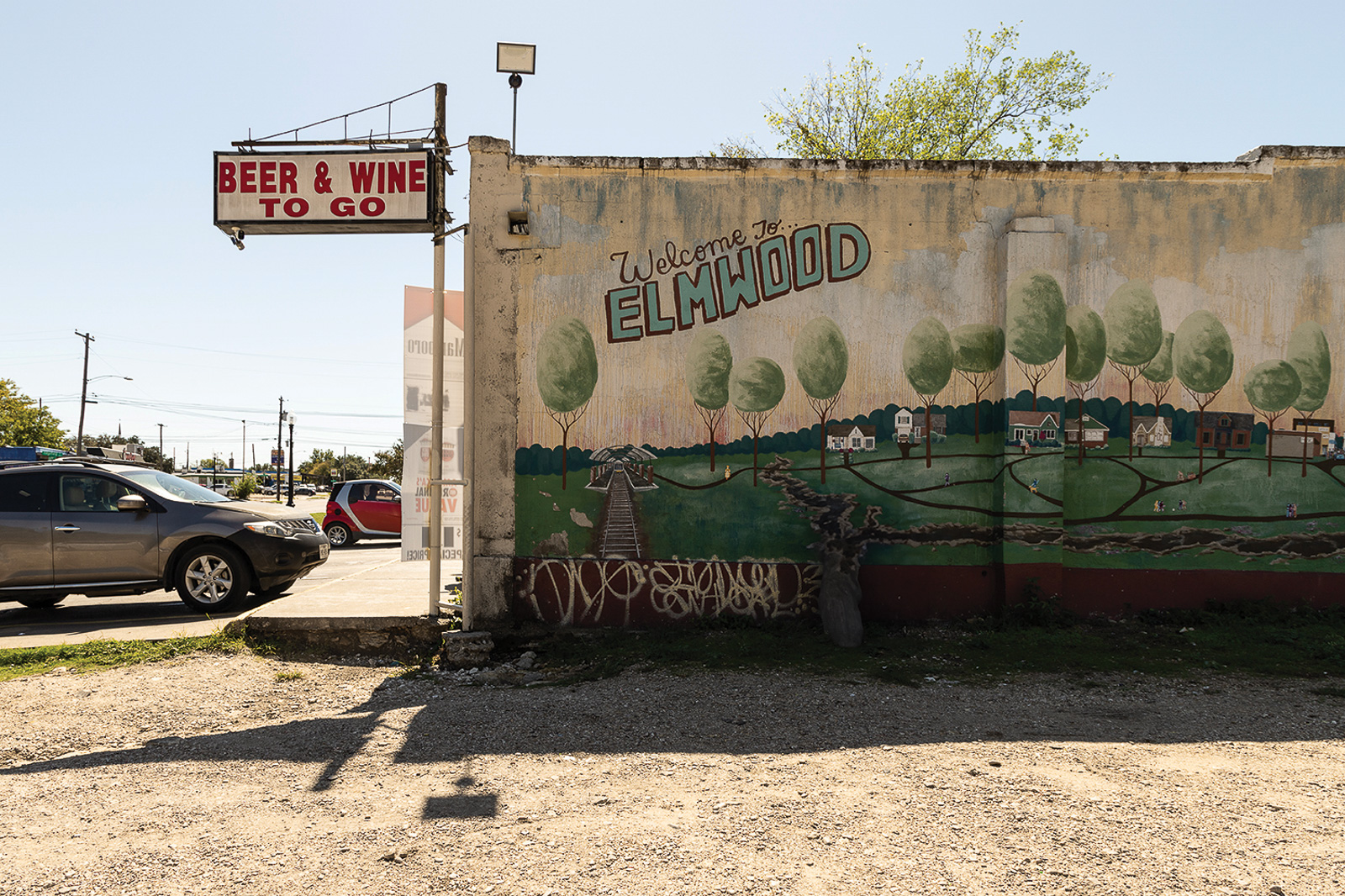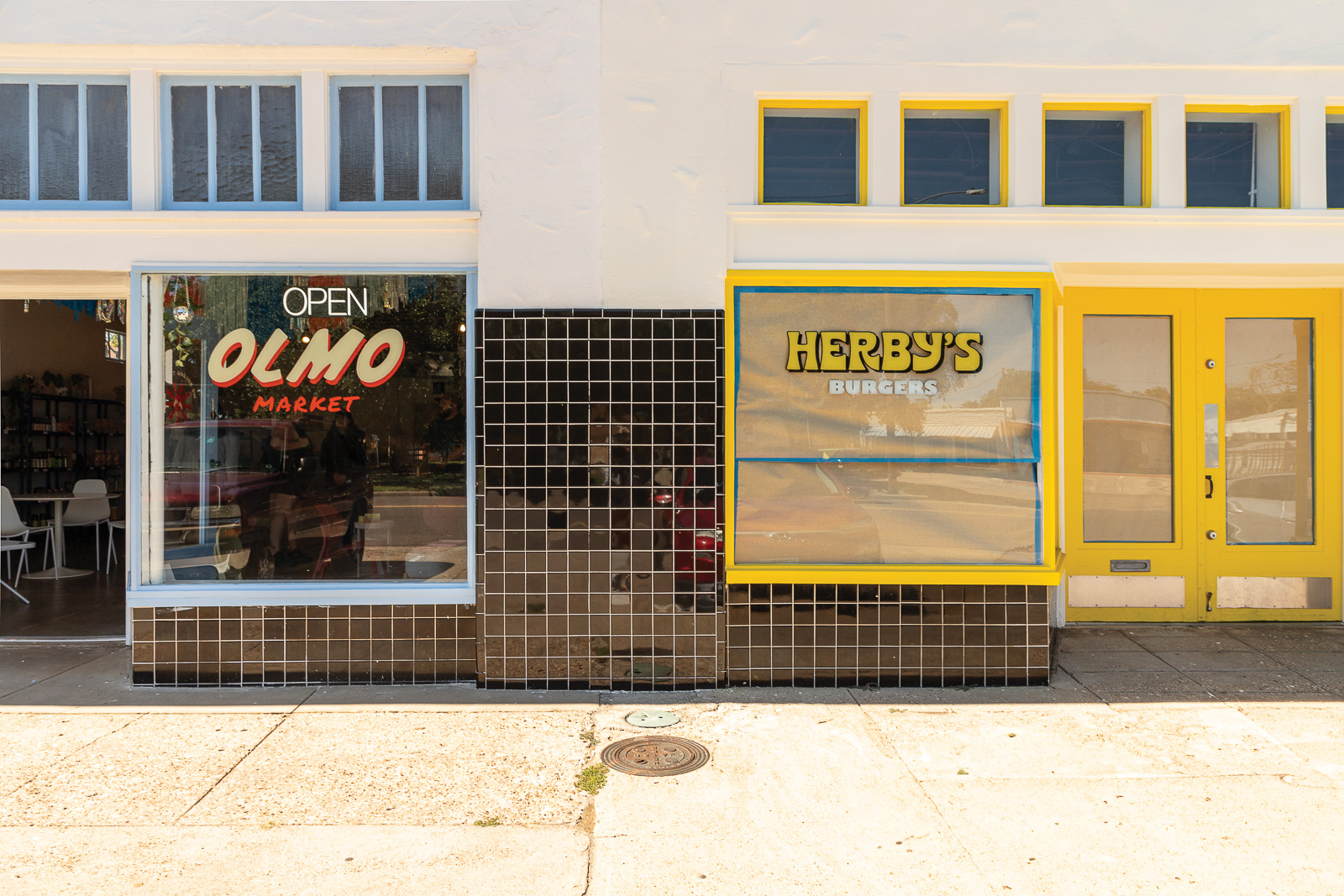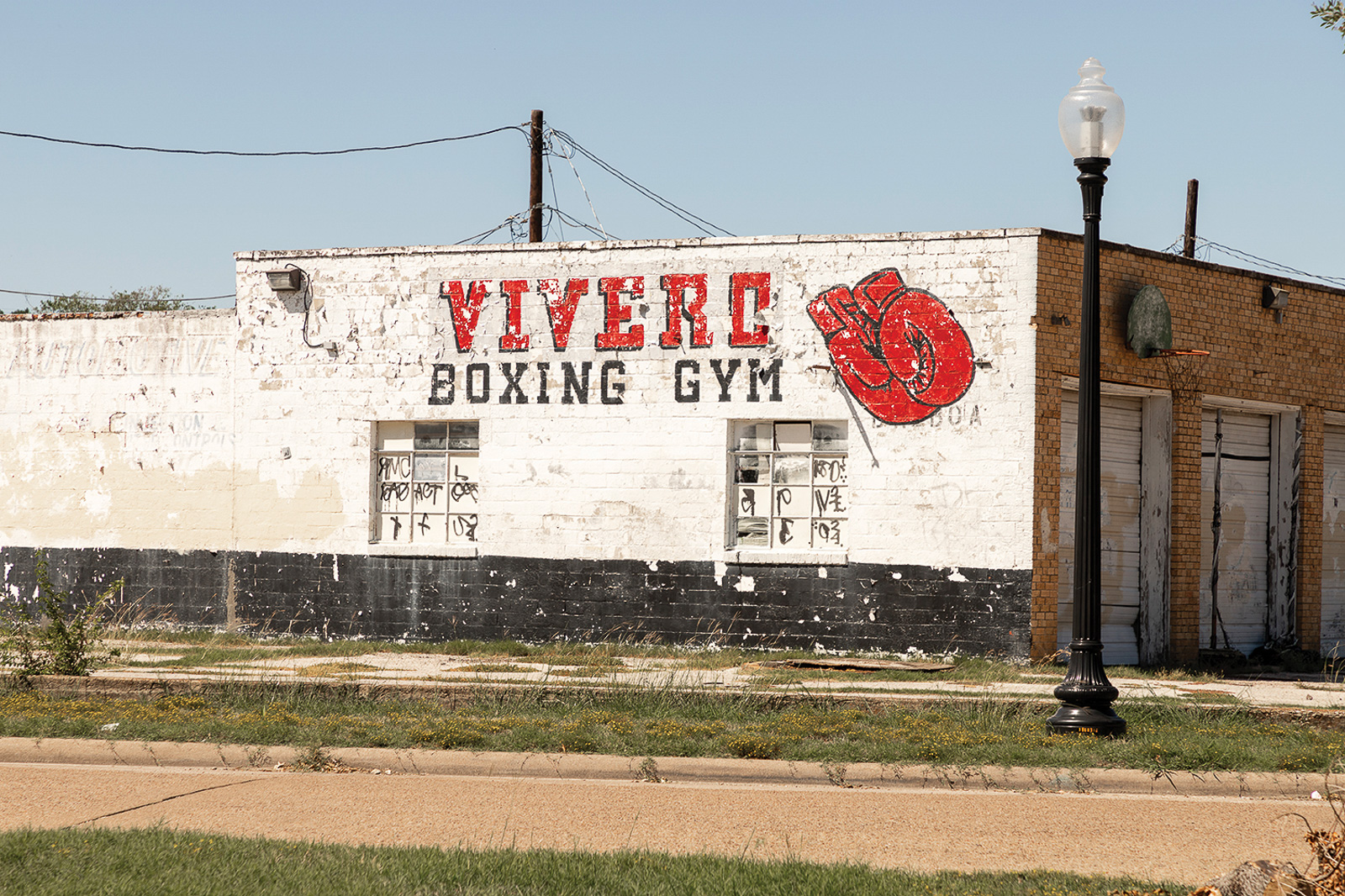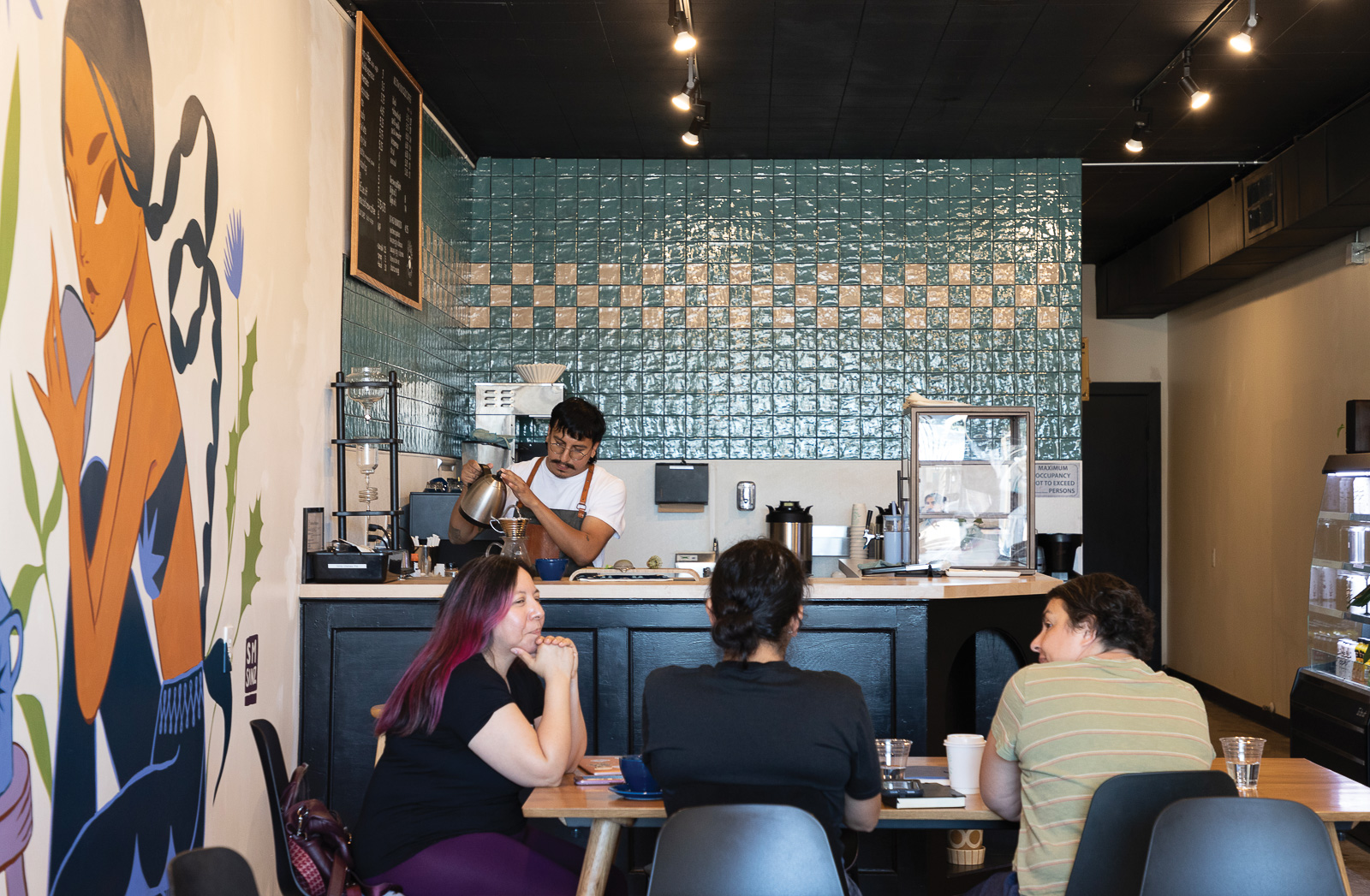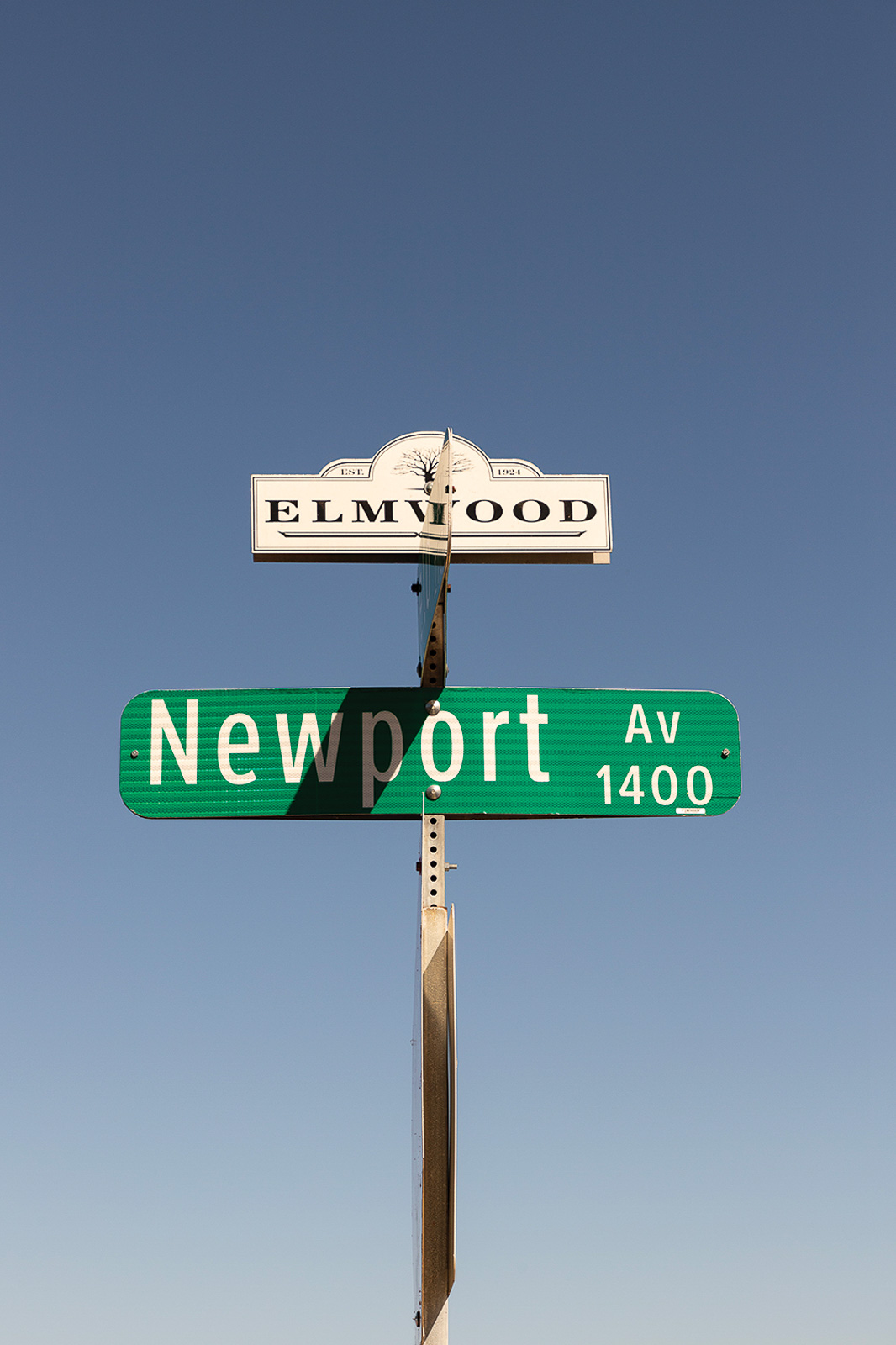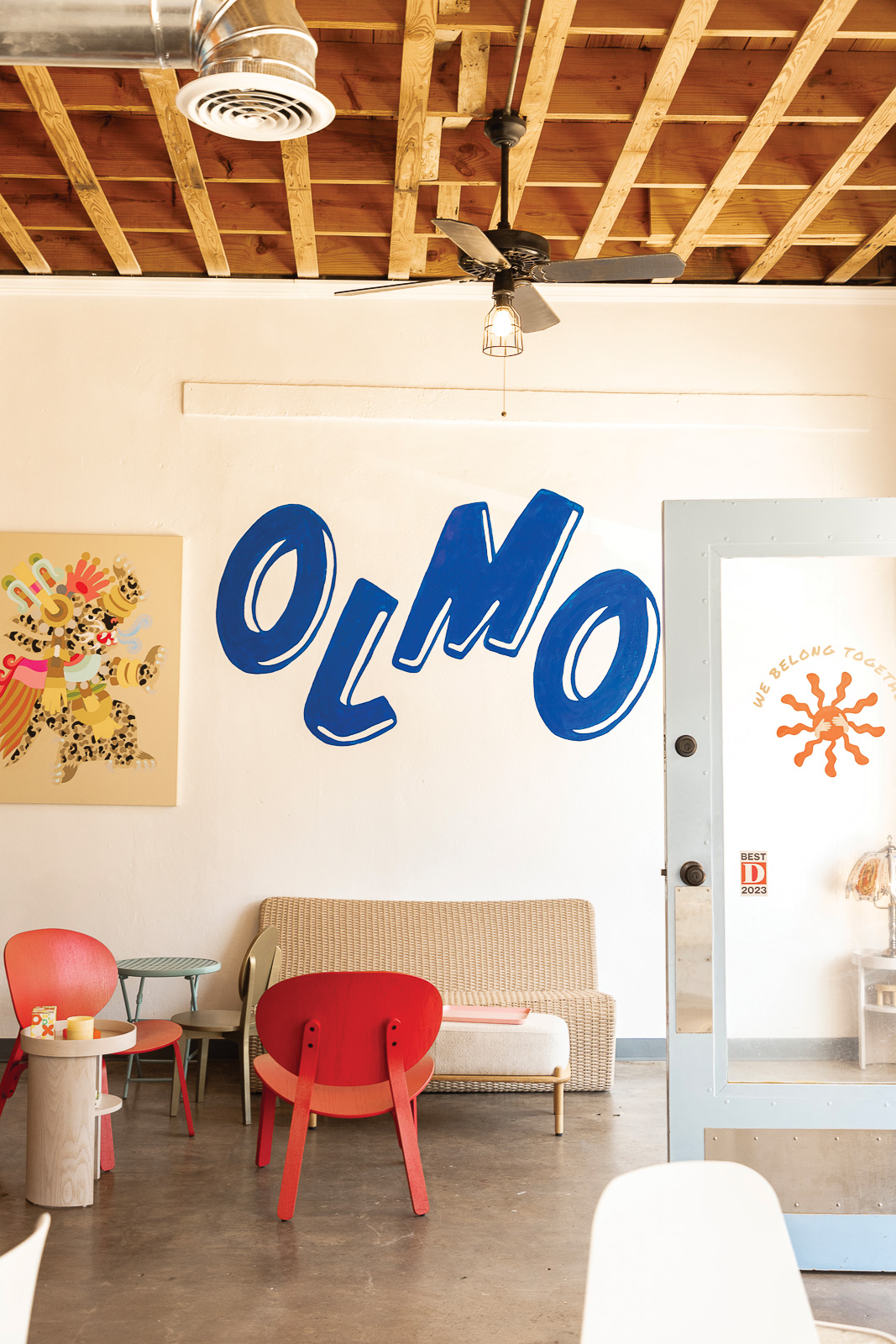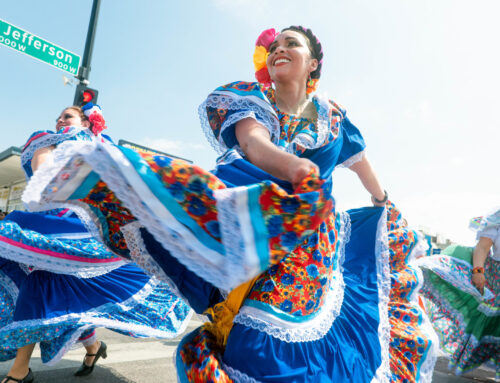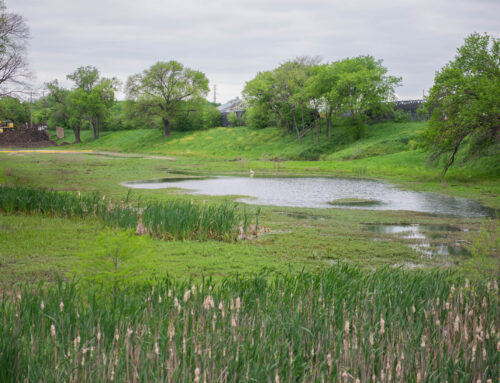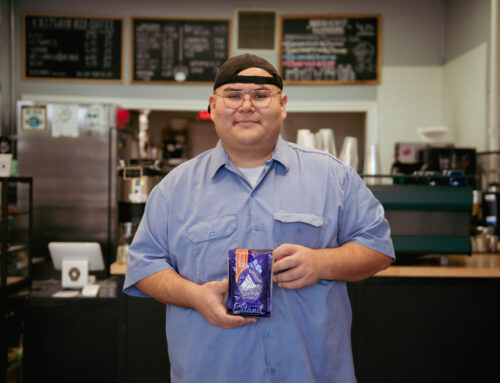Elmwood sits on the other side of the tracks.
For a long time, the neighborhood’s claim to fame was its cameo in Tom Cruise’s 1989 film, Born on the Fourth of July. At the time, the Downtown shops that lined Edgefield were decorated with brightly painted signs and storefronts.
Everything from ice cream to fish tackle could be bought during a short walk down the street, and neighbors prided themselves on the fact that Elmwood, whilst a part of Dallas, functioned as its own city.
Today, much of the neighborhood’s Downtown charm exists under a layer of dust.
Crime was a factor in the decline, and hyper-specific zoning has made city permitting especially difficult for business owners to successfully operate.
But, in the last year, there has been the buzzing of new business. First Olmo Market opened. Then Peaberry Coffee and Oak Cliff Pilates. Slow and Steady Coffee stands as a welcome marker into the neighborhood and the future storefront for Herby’s Burgers is a bright yellow beacon.
With every fresh coat of paint, it becomes more and more clear a renaissance is upon us.
But it’s a tricky thing to navigate.
Bringing in development without encouraging gentrification. Maintaining a small-town feel whilst being Oak Cliff’s largest neighborhood. Balancing the groundwork laid by an older generation with the visions of millennials venturing into home ownership.
According to Neighborhood Association President Whitney Marsh: “Elmwood was created to be its own town.”
Oak Cliff’s Mayberry
Marsh describes Elmwood as the “land of opportunity.”
She and her husband moved into their “dream home,” a humble but charming Tudor, in 2020. Their first foray into home ownership, the couple fell in love with Elmwood’s “grit and character.”
Marsh entrenched herself into the neighborhood culture right away. For a while, her design business was located in a Downtown Elmwood store which she painted and revamped. Then, she purchased a small strip of storefronts along Edgefield from the grandson of the original 1940s builders.
Marsh has brought in tenants like Peaberry Coffee and Oak Cliff Yoga, and a third space is set to open at the end of this year.
She finds herself in an “interesting” position as neighborhood association president and a developer, but has approached her retail spaces with the intention of finding local, small businesses that will meet the needs of Elmwood she hears about in meetings.
“You can’t make everyone happy. All I can do is take care of my stuff and build the community I want,” Marsh says. “There’s nothing wrong with wanting better and wanting a safe place for our kids.”
Despite Marsh’s endearing optimism, businesses face substantial challenges when trying to get off the ground in Elmwood.
Insurance companies assess the area as “high risk” because of crime. (“We found bullet casings outside of our building the other day,” Marsh says.)
And navigating city permitting is a full-time job.
“I’ve (opened a business) a couple times now in the last five years, and it isn’t getting any easier,” says Peaberry Coffee Owner Elijah Salazar.
Peaberry’s second location opened on Edgefield in August. Salazar knew opening a business in Elmwood would come with permitting challenges, but he took steps to help speed up the process.
He hired an expeditor to help move applications and paperwork through the city offices faster, but that didn’t seem to do much.
He registered with the city as a contractor in December 2022, hoping to have more control over his documents, but he didn’t get access to the contractor portal until September.
Most of Downtown Elmwood is zoned for office spaces and auto mechanic shops, and “it’s been said countless times” that most zoning issues for a budding business go back to parking. Salazar was initially told Peaberry Coffee didn’t have enough parking to open, despite the long row of empty spots in front of the building.
He applied and was approved for a to-go business certificate of occupancy (CO), which reduced the number of parking spots the store was required to have, and a health inspector signed off on the opening. But a September code sweep through Downtown Elmwood struck the business with a violation warning, and Salazar is now having to reapply for a new CO that allows for seating within the store.
If he has a question for the city permitting office, he says the answer depends on who happens to pick up the phone.
“I know my little business doesn’t compare to some of these giant companies in Dallas,” Salazar says. “But we get forgotten about because we’re smaller and it feels like we don’t matter as much.”
While challenges to Elmwood zoning did weigh on Salazar’s decision to open a business in the neighborhood, his second neighborhood spot will open its doors by the end of the year.
Opening in the spot between Olmo Market and Oak Cliff Yoga, Herby’s Burgers will be a collaboration between Salazar, Elmwood resident Will Rhoten and Jake Saenz of Rev’s Grilled Cheese.
Rhoten, who performs under the pseudonym DJ Sober, moved to Elmwood in 2007.
He remembers watching the Downtown area sit “dormant” for years.
“There didn’t seem to be much going on on that block. I always looked at these spaces like, ‘man, that’d be really cool if someone put something there,’” Rhoten says. “I really did like the facades of the buildings and liked how it looked and just felt like there was space to do something cool in my own neighborhood.”
Rhoten likes that the development of Downtown Elmwood has been “homegrown,” with businesses taking on a “by the neighborhood for the neighborhood” mindset.
Leading up to a grand opening, Herby’s has done pop-ups at Tyler Station and at the yellow-trimmed storefront. Rhoten wants to put on a Downtown Elmwood movie night, and organize other programming that “all kinds of people can be involved in.”
Elmwood, he thinks, is set to become the type of neighborhood that people in other cities “start hearing about,” and want to visit.
“What sucks is, I think that when people see an area start to get some attention, or they see buzz happening, that’s when the people with the big bucks come in,” Rhoten says. “Which, to me, is always disheartening, because I feel like you lose the charm that drives people to places.”
The Bishop Arts Boogeyman
Janet Smith moved to Elmwood in the late 1990s.
Smith is gregarious, and the type of person to say everything happened “about 20 years ago.” Despite the fact that there are many people who have “lived in Elmwood longer” than she, Smith represents a deeply rooted generation of Elmwood residents.
While she tends not to “think about money too much,” she knows she wouldn’t be able to afford her home today, if she hadn’t paid it off all those years ago.
“I noticed before the pandemic that things were starting to really move and shake,” Smith says. “And then all these young folks were moving in and were really invested.”
Before the pandemic, Smith remembers Elmwood as being a more renter-heavy neighborhood. But in the last three years, a wave of homeowners, most of them young and first-time buyers, have joined the neighborhood.
“There are babies everywhere now,” she says.
Before the Bishop Arts boom, “everybody knew everybody,” in Oak Cliff. Smith was so social she earned the nickname “The Mayor,” one that has stuck even today.
But the development of Bishop Arts serves as a sort of boogeyman for Elmwood residents. Smith, Marsh and Rhoten all pointed to the neighborhood to the north as an example of what they don’t want for their enclave.
“I don’t know anybody that doesn’t want to see something nice come from Downtown. And it’s getting there,” Smith says. “(Overdevelopment is) a big concern for a lot of folks. Nobody that I’ve ever talked to wants to be like Bishop Arts, and I think that is the saddest thing that’s ever happened to Oak Cliff.”
Smith wasn’t significantly involved in the Elmwood Neighborhood Association in her early years, but she feels the association’s involvement has been bolstered in recent years. She focuses most of her efforts on beautification projects and has no ambitions of presiding over Elmweird, as she likes to call it. (“I’m happy to just be The Mayor,” she says.)
The creation of Elmwoof Dog Park in 2018 was a rallying point for neighbors, she says. And the Downtown Elmwood authorized hearing, which will address street calming and walkability, is currently circulating through the city plan commission and city council process.
Modeled after the West Oak Cliff Area Plan, the plan has been a major conversation in neighborhood association meetings in recent years.
Outreach is the biggest problem facing neighborhood efforts. While Elmwood’s newest residents tend to be “super involved,” residents who are older or may not speak English are often difficult to reach.
“That’s the really hard part. That’s the biggest downside of Elmwood, it is just so damn big,” Smith says. “I don’t want to change it personally, you know… But without change, you don’t have growth. So I’m like, whatever happens happens.”

